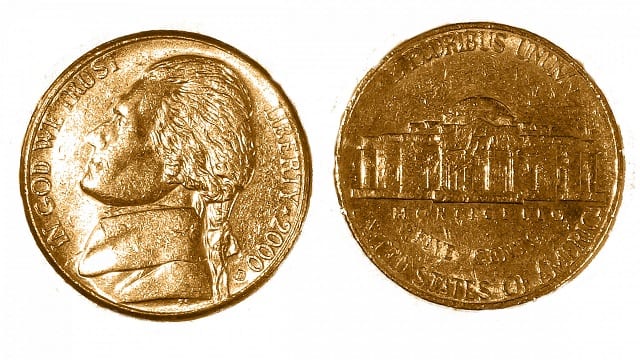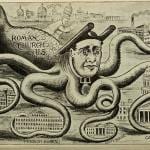
Reformed Baptist anti-Catholic apologist Bishop “Dr.” [???] James White took on the issue of synergy, man’s cooperation with God, God’s free gift of grace, and faith and works in his article entitled, “An Attempted Syllogism Examined” (11-3-09). He cited Catholic philosopher Francis Beckwith, denying “that Catholicism embraces ‘works righteousness’ because justification requires human cooperation (though performed in sanctifying grace)”. White’s words will be in blue.
*****
[H]e does not tell us why we should think that because Jesus was the God-Man this means the gospel has to be partly God’s work and partly man’s (a synergistic system). Further, in quoting the Roman Catholic position Beckwith embraces not only the concept of infusion, but that “Moved by the Holy Spirit and by charity, we can then merit for ourselves and for others the graces needed for our sanctification, for the increase of grace and charity, and for the attainment of eternal life.” Of course, only God’s grace makes it possible for this to happen, however, we are still doing the meriting and, of course, there are those who do not “cooperate” and thus lose the grace of justification, becoming enemies of God. And so the real issue of the Reformation remains the same today as it was then: it is not the NECESSITY of grace that is at dispute, it is the SUFFICIENCY of grace that is the focus of the debate. And, of course, so many of those who are non-Roman Catholics today actually agree with Rome against the Reformers on that topic, and are thusly crippled in resisting Rome’s teachings. . . .
But there is by far a more pressing reason to reject Beckwith’s syllogism: the Bible speaks directly to the issue of the fact of God’s solitary and unique role in salvation. Not only are we told that salvation is of the Lord, but that all of salvation is of the Lord, from beginning to end, and that God, and God alone, is to be glorified as a result. Consider these words:
26 For consider your calling, brethren, that there were not many wise according to the flesh, not many mighty, not many noble; 27 but God has chosen the foolish things of the world to shame the wise, and God has chosen the weak things of the world to shame the things which are strong, 28 and the base things of the world and the despised God has chosen, the things that are not, so that He may nullify the things that are, 29 so that no man may boast before God. 30 But by His doing you are in Christ Jesus, who became to us wisdom from God, and righteousness and sanctification, and redemption, 31 so that, just as it is written, “LET HIM WHO BOASTS, BOAST IN THE LORD.” (1Co 1:26-31)
Further, the problem with Rome’s gospel can be illustrated by asking Frank Beckwith (and any other follower of Rome) the same question I asked Fr. Peter Stravinskas in 2001, a question that a truly honest Roman Catholic cannot answer as the Bible does. Dr. Beckwith, are you the blessed man of Romans 4:7-8? Are your sins imputed to you? What does your priest say when you ask him? You know the answer from Rome’s teachings, but surely you must know that Paul’s answer would be, “the blessed man is every believer in Jesus Christ.” So how do you answer this question?
Delighted to have the opportunity to interact with White’s provocative question. My answer is, yes, indeed I and any other regenerated Catholic believer, not mired in mortal sin (see 1 Jn 5:16-17), is the “blessed man” of Romans 4:7-8 (RSV, as throughout): “Blessed are those whose iniquities are forgiven, and whose sins are covered; [8] blessed is the man against whom the Lord will not reckon his sin.”
We can, however, lose this blessedness by means of our rebellious free will, and so those familiar with all the relevant biblical teaching on possible apostasy and the moral assurance of salvation (as opposed to some imaginary absolute assurance), agree with the Bible writers that we are in Christ and will be saved, provided that we don’t “turn back again to the weak and beggarly elemental spirits” (Gal 4:9), or “submit again to a yoke of slavery” leading to our being “severed from Christ” and “fallen away from grace” (Gal 5:1, 4), and “provided that” we “continue in the faith, stable and steadfast, not shifting from the hope of the gospel” (Col 1:23), and do not (according to what “the Spirit expressly says”) “depart from the faith by giving heed to deceitful spirits and doctrines of demons” (1 Tim 4:1), and if we have not “strayed after Satan” (1 Tim 5:15).
The apostle Paul made it clear that he himself (as in 1 Cor 9:27) had “not . . . already obtained” this salvation, and that he had to “press on” to make that happen (Phil 3:12); he would be saved unless “after preaching to others I myself should be disqualified” (1 Cor 9:27). He also wrote that we will be “children of God” and “fellow heirs with Christ, provided we suffer with him in order that we may also be glorified with him” (Rom 8:16-17).
The writer of Hebrews is even more crystal clear and explicit. We will be saved by God’s grace unless “there be in any of you an evil, unbelieving heart, leading you to fall away from the living God” (3:12), or if it so happens that we are “hardened by the deceitfulness of sin” (3:13), and “if only we hold our first confidence firm to the end” (3:14). Is it clear enough yet? The same inspired writer of God’s infallible revelation informs us that “it is impossible to restore again to repentance those who have once been enlightened, who have tasted the heavenly gift, and have become partakers of the Holy Spirit, and have tasted the goodness of the word of God, and the powers of the age to come, if they then commit apostasy” (6:4-6).
St. Peter continues the same sort of thought on apostasy: “Forsaking the right way they have gone astray; they have followed the way of Balaam, . . . For if, after they have escaped the defilements of the world through the knowledge of our Lord and Saviour Jesus Christ, they are again entangled in them and overpowered, the last state has become worse for them than the first. For it would have been better for them never to have known the way of righteousness than after knowing it to turn back from the holy commandment delivered to them” (2 Pet 2:15, 20-21).
Thus, — bottom line –, we must sadly conclude that James White’s exegesis and soteriological teaching is shallow and hyper-selective, whereas Catholic soteriology is far more comprehensively biblical: taking into account all relevant themes and passages, so as to create a coherent whole.
I suppose that if anyone simply chose to ignore the passages I have highlighted (most of them from the apostle Paul), or had never ever learned of them at all, then sure (ignorance is bliss, as they say), he or she would believe in absolute assurance of salvation, based on the every carefully selected passages that White and other Protestant preachers and theologians and apologists produce. But that would be insufficiently biblical and it would be a simpleton man’s religion. That’s the problem.
Lastly, I would like to examine another portion of Scripture that doesn’t fit at all into James White’s and the general Calvinist / eternal security / fundamentalist mold (this argument would not apply to the many Arminian / Wesleyan-type Protestants, who believe that apostasy or falling away from grace and salvation is possible).
For White and his like-minded buddies, it’s a very simple affair: you are forgiven once and for all with a sinner’s prayer or some other outward form of committing oneself to Christ (an adult baptism or whatever). That’s it. There is no more need for forgiveness because God imputes justification to such a believer, and saves him or her once-and-for-all in that one-time event.
The problem is that 1 John (among many other passages) completely contradicts this scenario. St. John repeatedly and undeniably teaches that we must exhibit this moral assurance of salvation and being in Christ by good works (the two are hand-in-hand; two blades of a pair of scissors, or two sides of the same coin, just as they also are in James). This is most assuredly not a “faith alone” theology:
1 John 1:7 but if we walk in the light, as he is in the light, we have fellowship with one another, and the blood of Jesus his Son cleanses us from all sin.
1 John 2:3-6 And by this we may be sure that we know him, if we keep his commandments. He who says “I know him” but disobeys his commandments is a liar, and the truth is not in him; [5] but whoever keeps his word, in him truly love for God is perfected. By this we may be sure that we are in him: [6] he who says he abides in him ought to walk in the same way in which he walked.
1 John 2:29 If you know that he is righteous, you may be sure that every one who does right is born of him.
1 John 3:3 And every one who thus hopes in him purifies himself as he is pure.
1 John 3:7 Little children, let no one deceive you. He who does right is righteous, as he is righteous.
1 John 3:10 By this it may be seen who are the children of God, and who are the children of the devil: whoever does not do right is not of God, nor he who does not love his brother.
1 John 3:22-24 and we receive from him whatever we ask, because we keep his commandments and do what pleases him. [23] And this is his commandment, that we should believe in the name of his Son Jesus Christ and love one another, just as he has commanded us. [24] All who keep his commandments abide in him, and he in them. And by this we know that he abides in us, by the Spirit which he has given us. (cf. 5:2-3)
1 John 4:8 He who does not love does not know God; for God is love. (cf. 4:11-12, 16, 19, 21)
1 John 4:20 If any one says, “I love God,” and hates his brother, he is a liar; for he who does not love his brother whom he has seen, cannot love God whom he has not seen.
***
***
Photo credit: Piotr Siedlecki [Needpix.com / public domain]
***













